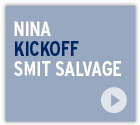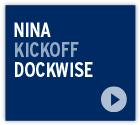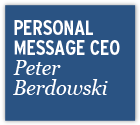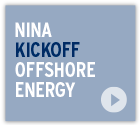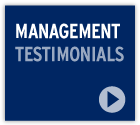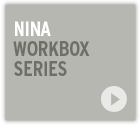NINA at Work articles
- Number 2 / 2024
- Number 1 / 2024
- Number 2 / 2023
- Number 1 / 2023
- Number 3 / 2022
- Number 2 / 2022
- Number 1 / 2022
- Number 3 / 2021
- Number 2 / 2021
- Number 1 / 2021
- Number 1 / 2020
- Number 4 / 2019
- Number 3 / 2019
- Number 2 / 2019
- Number 1 / 2019
- Number 4 / 2018
- Number 3 / 2018
- Number 2 / 2018
- Number 1 / 2018
- Number 6 / 2017
- Special edition / 2017
- Number 4 / 2017
- Number 3 / 2017
- Number 2 / 2017
- Number 1 / 2017
Media Library
TestimonialVideosNews Items
LOOKING AT ONESELF
Eugène van Dodeweerd (Director Fleet Management Offshore) and Steve van Hulle (Business Unit Director Transport & Marine Services) about the importance of reflection and consensus after an accident.
Each accident is one too many. But if something happens one should critically consider the way one acted and dare to take responsibility for it, with the aim of learning from it. Piet Bolt (Captain), Eugène van Dodeweerd (Director Fleet Management Offshore) and Steve van Hulle (Business Unit Director Transport & Marine Services) look back at the accident with the Union Lynx last summer.
THE ACCIDENT
In July 2017 the Union Lynx had to anchor up a crane vessel of Heerema. Because the wire was not properly winched, leading to a risk for the anchor work, it was decided to wind it up first. The night before, the approach was discussed: with the stern in the wind the weight of the ship would ensure a constant force to properly wind off and up the wire. The next morning there already was much wind, which rapidly increased even more. Because of the course of the ship and as it was held by the wire, the stern was kind of pulled into the waves. With the first high wave the boatswain and a sailor grabbed the crash rail but in vain; the second wave lifted them up and smashed them against a boat landing that was lashed on the deck. The men had to be taken to hospital with various injuries. Fortunately, both are doing well now.
THE INVESTIGATION
The weather as a risk factor was one of the subjects of the investigation that followed – which is the normal practice. What made this investigation particularly special is how both the customer and Boskalis immediately stood shoulder to shoulder: no blame game but reflecting on their own acts and responsibilities in complete openness. Eugène: “The customer was in the same gear as we were. Where we have NINA, Heerema has IIF, with comparable values & rules, which made it much easier to address the affair together.” Steve: “All parties wanted to learn from it. That I found something very special.”
HOW TO MOVE FORWARD?
The collective approach led to a number of lessons learned, which were shared through the Safety Newsflash, as well as a change to the protocol: now everyone must meet before the start of the work (the marine radio cannot be used for this) to discuss any change of the weather, for instance. “The idea is that people are more likely to say something if they can look each other in the eye” - says Steve - “because this remains something tricky.” He intends to ask his people even more about NINA: “We must keep insisting on the execution of start-ups, toolboxes, team reflections, as because of NINA you really begin to realise what your responsibilities are and that you need to act proactively.” Eugène shares this view: “NINA reduces the distance between the shore and the ship through the dialogue one starts. And that is precisely what our responsibility is: build an open relationship within your own team and with the customer, internal organisation and ship crew.”
“We must keep insisting on the execution of start-ups, toolboxes, team reflections, as because of NINA you really begin to realise what your responsibilities are and that you need to act proactively.”
Steve van Hulle
